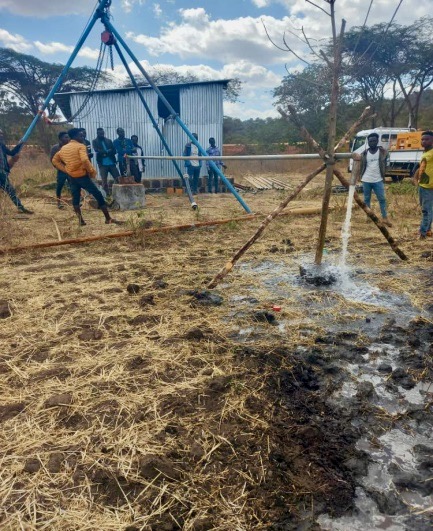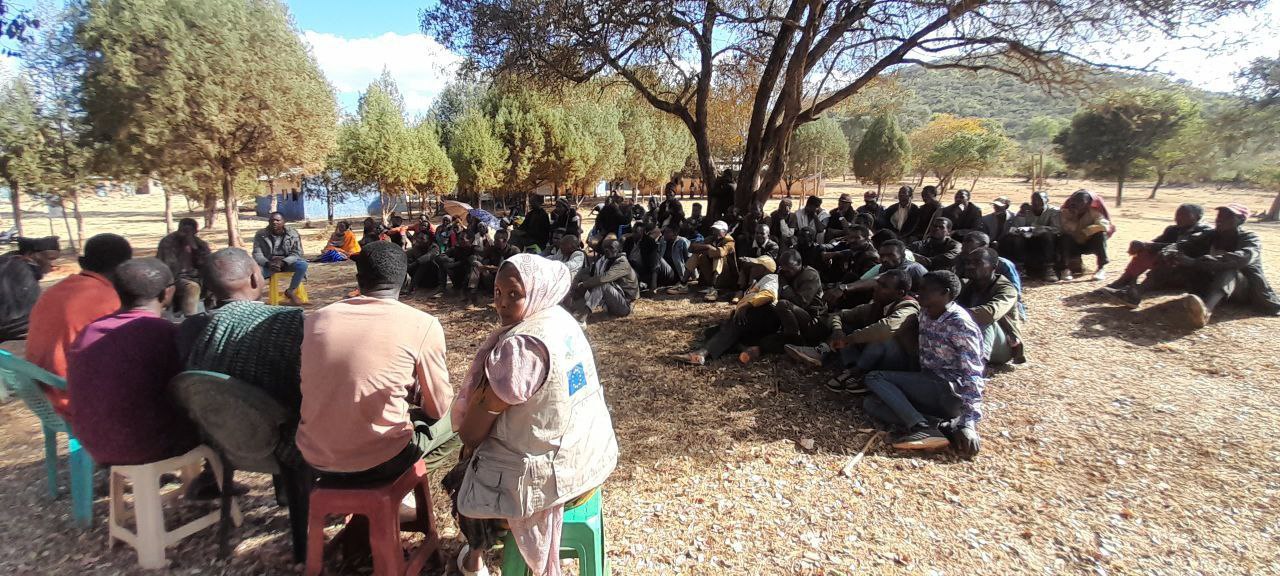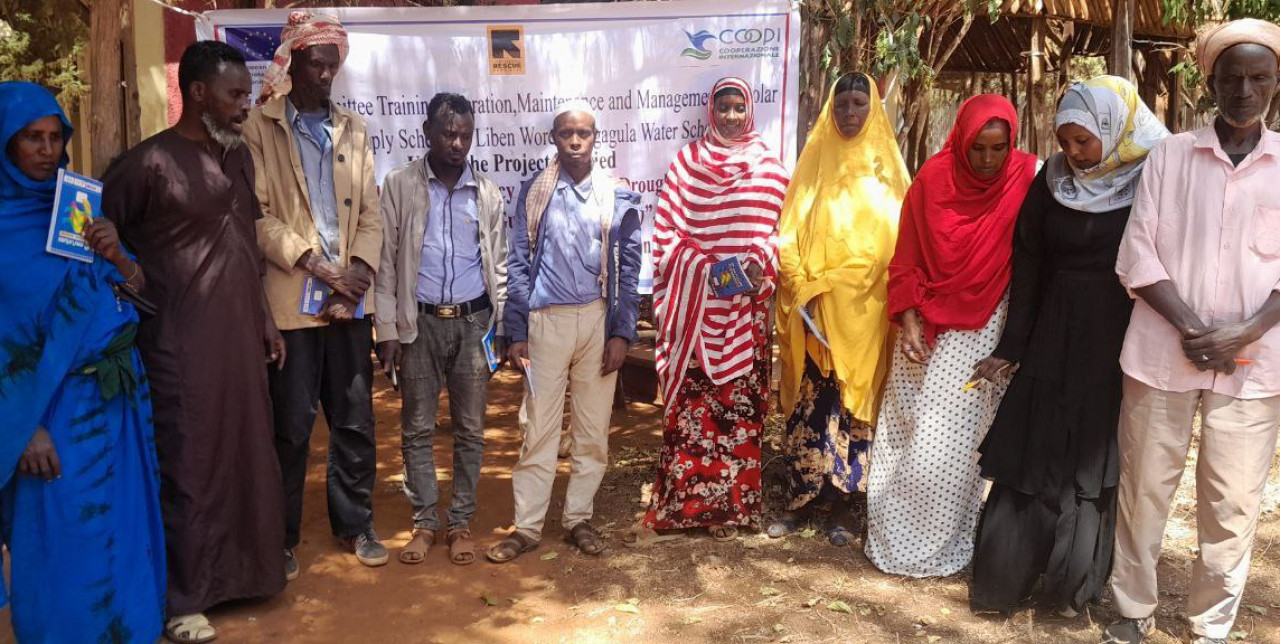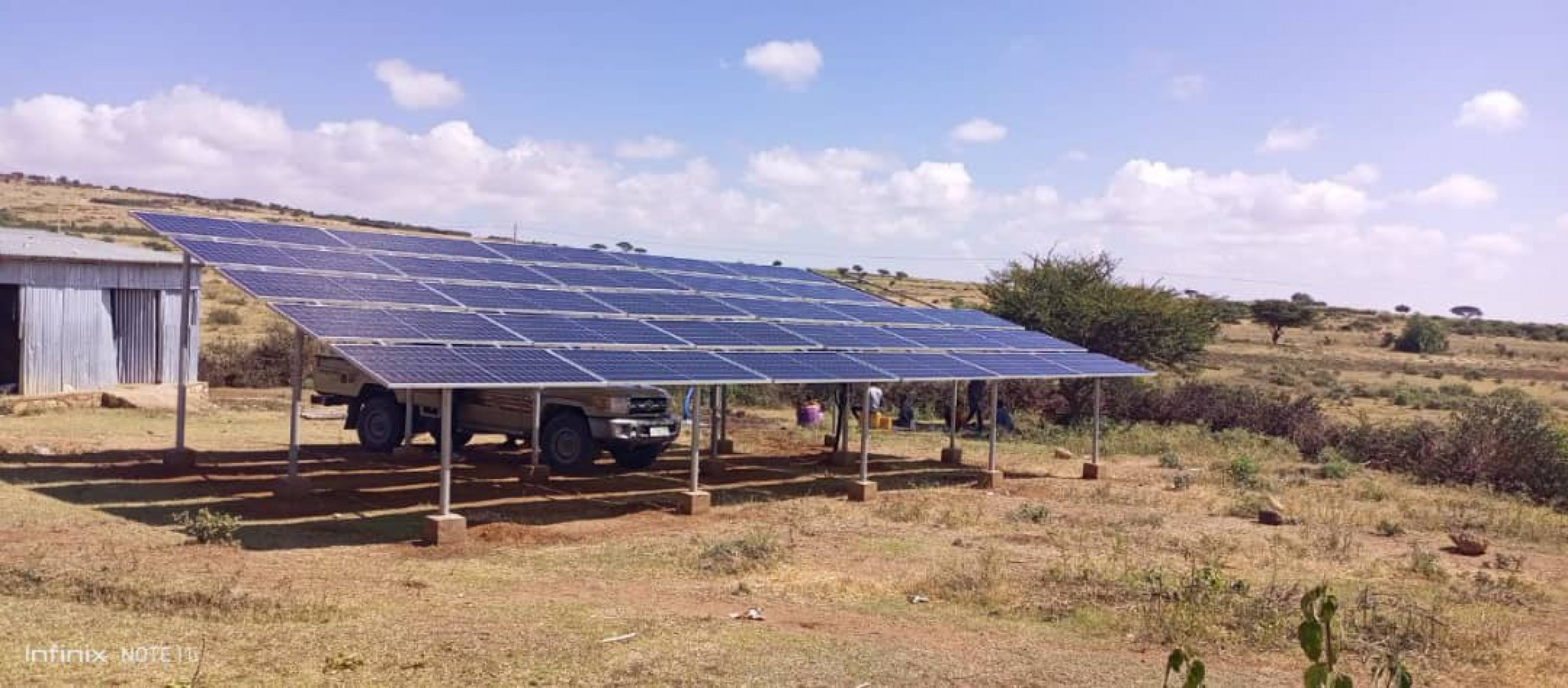19-06-2023 | di COOPI
Ethiopia. The response to the drought emergency in the Oromia region.
A six-month project funded by the Directorate-General for European Civil Protection and Humanitarian Aid Operations (DG ECHO) started in the Oromia region in November 2022. COOPI-Cooperazione Internazionale took the lead following the dramatic droughts events and the systematic low frequency and distribution of rainfalls due to climate change that affected this region in June 2022. Communities are now facing severe humanitarian needs concerning mainly basic needs. Unknown Armed Groups undermine and deteriorate the security of the already destabilized area.
The most affected area is Guji Zone, which hosts 116,762 Internally Displaced Peoples (IDPs), where 1 million and 154,518 livestock heads have been affected by drought and need relief support. On top of this an outbreak of livestock disease, killing a considerable amount of cattle, has been reported. More than 350,000 persons are described as in need of drinking and domestic water supply which leads to a lack of access in terms of Water Sanitation and Hygiene (WASH) and risk of hygiene-related and waterborne diseases.
The project has two key objectives:
- to deliver a coordinated and effective humanitarian WASH response to the targeted total population of 5,500 beneficiaries
- to deliver a coordinated and effective humanitarian Food and Security Livelihoods (FSL) response to targeted 105,000 recipients affected by the recent emergencies.
Initially, COOPI foresaw the rehabilitation of the Loko and Lagagua Borehole water schemes, but due to preliminary tests, the WASH team identified the Chiribekaka borehole in Seba Boru Woreda as an alternative scheme to respond to the humanitarian needs which reduced the total amount requested for NFI (Non-Food Items). Here, successful water quality and pumping tests assessed the hydraulic characteristics and yield of both boreholes. Chiribekaka Borehole can serve up to 2,880 individuals while Lagagula Borehole will be serving 4,000 individuals.

This effective rehabilitation allowed other activities to run, for example, a considerable hygiene promotion scheme was implemented to identify the key messages to deliver to the target population. With this, COOPI managed to train two WASH experts in close collaboration with Sebaboru and Liben Woredas water offices following national and regional WASHCo training guidelines. COOPI and Woreda water office continue the training on the job by supporting the operators to carry out the role of managing and operating the water scheme.
Moreover, COOPI completed the selection of 730 households to provide 870 life-saving WASH NFI kits.
By focusing on the second objective, COOPI supports the governmental vaccine campaign through the capacitation of Community Animal Health Workers (CAHWs) and animal health clinics by providing vaccination and treatment of livestock heads. At this stage, 504,000 live vaccine doses have been successfully delivered for the identified livestock diseases agreed with the Guji Zone agriculture office. The project also assists the selected 12 veterinary clinics and posts through the provision of essential equipment.

COOPI is an active partner in Guji Zone coordination platforms and continues to communicate with UNOCHA and FAO regional sub-clusters to maintain the relationships even after the end of the project. The interventions will benefit a wide range of vulnerable communities and their institutions while giving them the tools and equal access to take responsibility for enhancing recovery in their areas during and after the project.




 Ethiopia
Ethiopia
